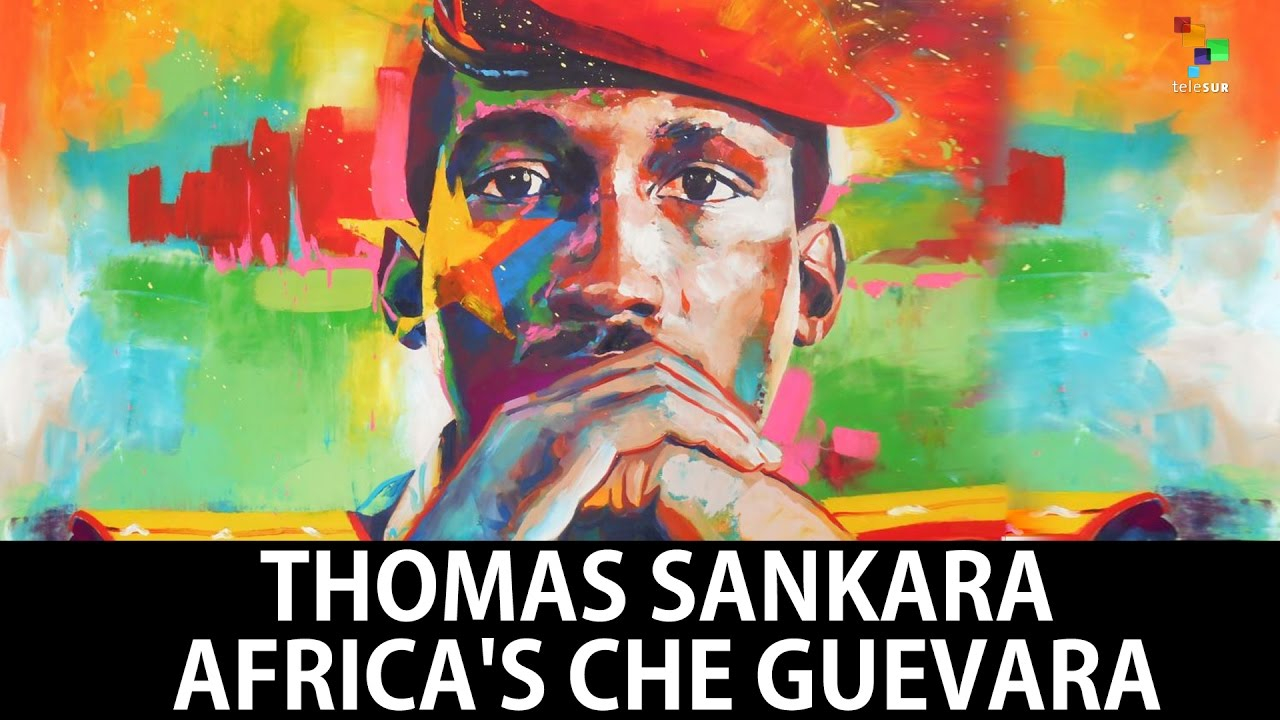If we are under the perception that Africa’s problems are so huge, complex, and diverse. Where to start? How to establish real change? How to improve people's lives and futures? Thomas Sankara, President of Burkina Faso from 1983 to 1987, continues to live on in the memory of his people.
This documentary about Thomas Sankara - Burkina Faso’s President from 1983 to 1987 - may well reveal that our perceptions are in fact misconceptions. What is Sankara's legacy and what can we learn from it today?
Thomas Sankara became president of Burkina Faso after a military coup on August 4, 1983. Sankara managed to revolve then Upper Volta from an impoverished country, totally dependent on foreign aid, into a self-sustaining proud African nation WITHIN FIVE YEARS!
Our country produces enough to feed us all. We can even produce more than we need. Unfortunately, for lack of organization, we still need to beg for food aid. This type of assistance is counterproductive and has kept us thinking that we can only be beggars who need aid. - Thomas Sankara
He managed to give his people a sense of pride, self-awareness, and self-determination, by applying simple but strict rules. Sankara was a military leader after all, not an elected official.
While Sankara’s policies proved to be very successful in his country, opposition abroad increased in particular from French governments, who somehow still have not been able to deal with and leave their colonial power status behind and are still meddling in the affairs of their former colonies up to this day.
How relevant is Sankara today? How does Sankara’s ghost continue to live on in the hearts and minds of the people? Well, for one, Sankara proved that once people are set on a path of self-determination a lot is possible in a short period of time.
Sankara proved his point and symbolized his vision by changing Upper Volta’s name into Burkina Faso
- The Land of Upright People - in 1984.
Adversaries will argue that Sankara was a dictator, proponent of a Marxist-Leninist doctrine, not a democratically elected official. Which is true. It is also true that a democracy is a very expensive institution and when a nation-state faces problems on the level of providing the most basic needs and essentials to its people, who are we, outsiders, to deny the right to self-determination to a sovereign nation-state?
Democracy somehow has gained the higher moral ground when compared to other doctrines, whereas in principle it is no more than another way of expressing and safe-guarding the most basic of human rights, among which the right to free speech and the right to self-determination, as a way for any sovereign nation-state and all of humanity to achieve liberty, equality, solidarity, and justice for all.
But what when democracy becomes a label, a trademark, with nothing more than a sense of 'feel good' so often expressed by other commercial brands? What if democracies fall victim to global power play? Then democracy loses its higher moral ground and becomes a double standard. Free speech, free elections for the 'haves' as long as the 'have nots' comply...
Sankara was able to put food on the table for his fellow countrymen, not by stealing and robbing, but making them work for it, often more literal than not with their own bare hands. And in doing so restoring their pride, self-esteem, and sense of purpose. Albeit for a short period of time.
Sankara was murdered on October 15, 1987, in a military coup, which ensured that Burkina Faso would align closer to the vision of its former colonial democratic master instead of choosing its own destiny amidst the league of nations.
A nation that loves itself, also loves other people. - Thomas Sankara
A nation that loves itself also loves other people and will act accordingly, much like we human beings act out of the love that was instilled in us.
A nation that lacks self-love, or even worse, suffers from self-hate, will seek to fulfill its needs outdoors, much as people do. It may even enforce this in perpetual war.
A nation that is at peace with itself, will nurture, provide sustenance for its people, much like Sankara did for a short period of time.
History is written from the perspective of the victors. Sankara was a winner, who lost his life in the process. He nevertheless set an example that may be followed by future African leaders.
